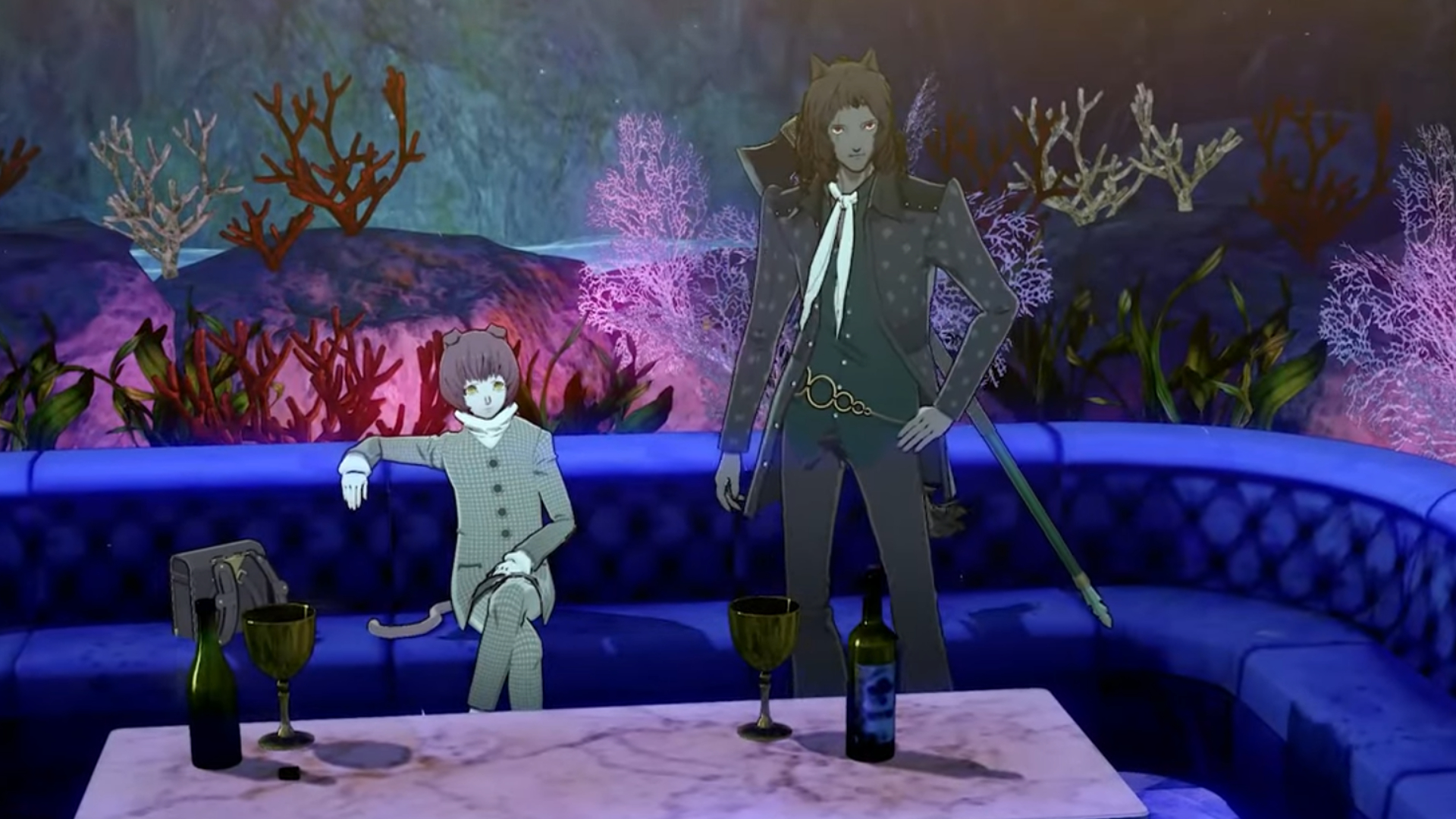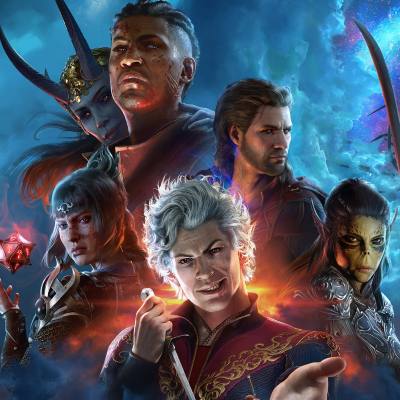Growing up an insufferable weeaboo, I was a staunch believer in consuming media “the way the creator intended.” Whatever the hell that meant. For me, it was watching or playing stuff in the language it was originally created for. Sub over dub, the classic.
Mercifully, I’ve long shed that ideology—partly thanks to getting older, but also because of a rapidly-waning attention span as a result of age that makes playing or watching things in English a whole lot less taxing on my brain. I’ll happily watch dubbed anime these days and play my JRPGs in my native language, which is exactly what I did with Metaphor: ReFantazio.
That choice was largely a convenience thing. Again, waning attention span. Also, I do generally really enjoy the English casting decisions Atlus makes, but it was mostly the convenience. What was originally a way to give my brain a rest, however, has become one of my absolute favourite aspects of Metaphor: ReFantazio, and I honestly don’t think I would have enjoyed the game as much had I experienced it in any other language.
I’ve played most of my Atlus games in English, mind, but something about Metaphor hits differently for me. The developer has done away with its all-American voice cast that I’ve become so used to across Persona and Catherine and instead gone for a delightfully eclectic British spread. As a Brit myself, I’m probably a little biased here, but it’s been so wonderful hearing so many dialects from all across our little island.
That’s because it’s not just the usual British guff I’ve become used to when I play games that dabble with our manner of speaking. You know the ones: the very received pronunciation, the odd gruff cockney or Essex bloke chucked in here and there.

British dialects in videogames very rarely venture beyond England’s capital. So when I emerged in Grand Trad for the first time—the debut city hub Metaphor Re:Fantazio’s protagonist lands in—I was immediately enamoured with just how many different voices I was hearing. I found myself running up and down Sunlumeo Street over and over just to hear one Welsh man proclaim “I love it!” over and over again, with sprinklings of northern and classic Queen’s English ringing in my ears.
It’s something I wasn’t expecting considering that the protagonist and his fairy companion Gallica—voiced by Caleb Yen and Alejandra Reynoso—sound very American, two of the only characters who actually do.
I know I dogged on quintessential English accents a couple paragraphs ago, but after meeting Strohl I immediately fell in love with Stewart Clarke’s performance. He does a bang-up job as an intelligent and thoughtful noble while also bringing some fantastic emotion to some more melancholic moments. Similarly, Joseph Tweedle’s early villainous speeches as Lord Louis quickly cemented him as someone I knew I would love to hate, providing the perfect voice to someone who is somehow equal parts beautiful and deeply evil.

Then there’s Metaphor’s first villain: Zorba. Seeing—and I mean this with all due respect—an androgynous, slightly twinky, pretty-boy necromancer who suddenly blurts out the gruffest Glasweigan accent I’d expect to hear in a pub at 3AM on a Saturday night was the most delightful case of whiplash I think I’ve ever suffered in a videogame.
Heading into Metaphor’s second town of Brilehaven and I found myself greeted with even more Scottish accents, though with a markedly softer brogue. Albino bat Heismay joins the party during this part, and while Philippe Spall’s accent is more European than British, his performance is genuinely award-winning for me. Eventually, I get to meet the likes of Junah, who voice actor Emma Ballantine said has a ‘light West Country’ accent, and come across Eupha’s soft Welsh speech (thanks to Emily Burnett) as the penultimate party member.
Neuras is another highlight of mine, serving as the gauntlet runner’s pilot. David Monteith nails every “tally ho” and “eh wot” he throws out in a way that somehow makes his antiquated speech patterns and quirks seem completely natural.
Then, there’s Fidelio and Basilio, voiced by Matthew McQuinn and Matt Whitchurch respectively, who are arguably the two characters who inspired me to write this entire thing in the first place.
It’s one a’ them, inni’
Now, I definitely think I would have loved these two paripus brothers even if I hadn’t played Metaphor in English. They’re kinda dorky looking with their mod 60s getup, Fidelio’s bowl cut and Basilio’s untucked shirt. They start off as Louis’ lackeys, but develop into incredibly likeable characters as the narrative unfolds.
They’re both also Scousers—someone from Liverpool, for my pals across the pond—an accent that is so very rarely heard in gaming. Again, perhaps I’m biased here as someone who has a deep fondness for the Liverpudlian diction, but both Fidelio and Basilio’s performance brings so much more heart to both of their characters.
They’re even localised with a sprinkling of Scouse slang—Basilio frequently refers to his brother as “our Del,” the replacing of “my” with “me,” adding extra flavour with words like “proper” (that’s proper good, that), “dead” (he’s dead sound, like), “like,” (he’s always worryin’, like). I could go on forever, honestly.

There’s been something special about seeing such underrepresented voices finding their way into Metaphor: ReFantazio, which in itself is essentially a game about just that. There’s hardly been a moment where I’ve found myself wincing or cringing at the English voice casting choices—maybe that’s down to the fact it seems Atlus plucked from the same studio as Larian did for Baldur’s Gate 3, with a lot of the credited actors having work in both. And as we all know Baldur’s Gate 3 is a very, very good game with some cracking voice work.
I definitely would have enjoyed Metaphor: ReFantazio regardless, but its English cast has catapulted the game to one of my favourites of the decade. Voice performances can truly make or break a game, and they can have huge emotional effects on us. There’s a reason there are awards for best videogame performance, and the voices behind those are often why we become so attached to these bundles of pixels.
If you haven’t played Metaphor yet, or haven’t played it in English, I implore you to try it. Especially if you’re British. Though I will give Atlus one note: Where the hell were the Brummies? I will be taking this very personally and expect an entire city dedicated to Birmingham in the sequel, thank you very much.






